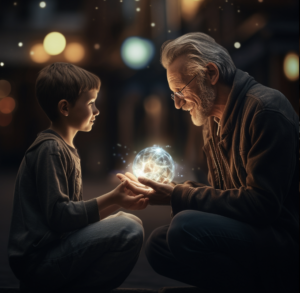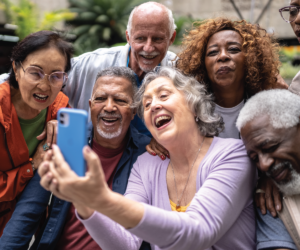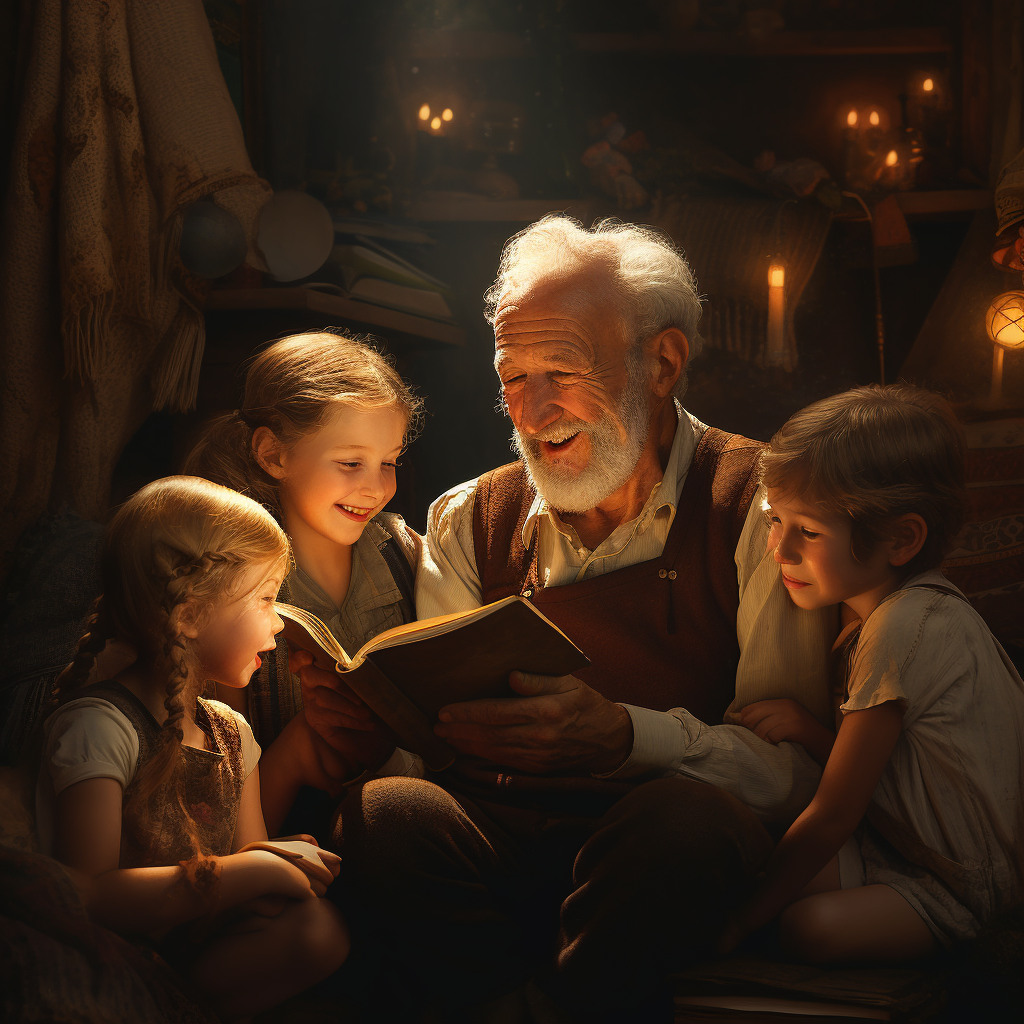The Wisdom of Elders: A Treasure for Society
In every society across the world, elders have played a vital role in shaping the values, beliefs, and traditions of younger generations. They are the custodians of collective experience, having lived through periods of change, crisis, and growth. Their wisdom, accumulated through decades of lived experience, serves as a guide for making important life decisions and navigating complex social issues. In our fast-paced modern world, where technology and trends seem to lead every conversation, it is crucial to take a step back and recognize the importance of the wisdom that elders offer. They remind us of the values and principles that help bind communities together.

The Role of Elders in Society
Throughout history, elders have been considered as pillars of strength and wisdom. Whether in ancient tribal societies or modern communities, they have always been respected for their deep understanding of life and human nature. The wisdom of elders often comes from firsthand experiences of war, poverty, love, loss, and societal changes that younger generations can only read about in books.
Elders pass down not just knowledge, but the understanding that life is more than immediate gratification or material success. Their experiences help shape the moral and ethical foundations upon which younger generations build their lives. They offer valuable lessons on resilience, humility, patience, and empathy — all qualities that are essential for creating a harmonious and just society.

Life Lessons Passed Down
One of the most valuable gifts that elders pass down to younger generations is the life lessons they have learned over time. These lessons are often rooted in timeless values, such as:
- Patience and Perseverance: Elders often emphasize that success and personal growth take time. They have lived long enough to understand that life rarely follows a straight path, and perseverance is the key to overcoming challenges.
- The Value of Relationships: While modern life is often consumed by the pursuit of success and individual achievement, elders remind us of the importance of relationships — with family, friends, and communities. They teach us that no achievement is more valuable than the bonds we share with others.
- Humility and Gratitude: Many elders have lived through periods of hardship, teaching them to appreciate the simple things in life. They often remind younger generations to remain humble, no matter their success, and to be grateful for what they have.
- Resilience in the Face of Adversity: Having lived through wars, economic downturns, and personal losses, elders understand resilience better than anyone. Their ability to rise after every fall serves as an important lesson to younger generations to never give up.
- Cultural and Historical Continuity: Elders are the keepers of tradition and culture, passing down stories and wisdom that define the identity of their people. They ensure that the history and lessons of the past are not forgotten, giving younger generations a sense of belonging and continuity.

Learning from Elders in a Changing World
In today’s rapidly changing world, where technological advancements and social media dominate our lives, it is easy to overlook the wisdom of those who have come before us. However, learning from elders is more important than ever. They offer a broader perspective on life, one that transcends temporary trends or immediate concerns. Their advice is often rooted in long-term thinking and collective well-being, reminding us that our actions today have consequences for future generations.
Elders also challenge the narrative of instant success, a prevalent mindset in modern society. They emphasize the importance of process, learning from failure, and building a strong moral character over time. These are crucial lessons for younger generations, who often face pressure to achieve success quickly in a hyper-competitive world.

Respecting Their Experience
Respect for elders has always been a central tenet in many cultures. However, in recent times, the reverence for age and experience seems to have diminished in some societies. As we move forward in this fast-paced, digital age, it is essential to remember that elders are not just relics of the past but are active contributors to the moral and cultural fabric of society. Their experiences hold valuable lessons that younger generations can apply to their own lives, helping them avoid pitfalls and grow into responsible, compassionate adults.
Respecting elders means more than listening to their stories — it means engaging with their wisdom and incorporating their life lessons into our daily actions. It involves creating spaces where elders feel valued and where their voices are heard. It means seeking their counsel and honoring their experiences by practicing the principles they hold dear.

Conclusion
Elders are a source of deep wisdom and life lessons that younger generations would do well to heed. They are the bridge between the past and the future, offering insights that can help navigate the complexities of life. In an era where youth is celebrated and speed is prioritized, we must not forget the importance of experience and reflection. By learning from and respecting the wisdom of elders, we not only honor their contributions but also ensure a more grounded and thoughtful future for ourselves and the generations to come.
Respecting and learning from elders is not just a cultural duty; it is a way to preserve the moral compass that guides society towards justice, empathy, and resilience.
